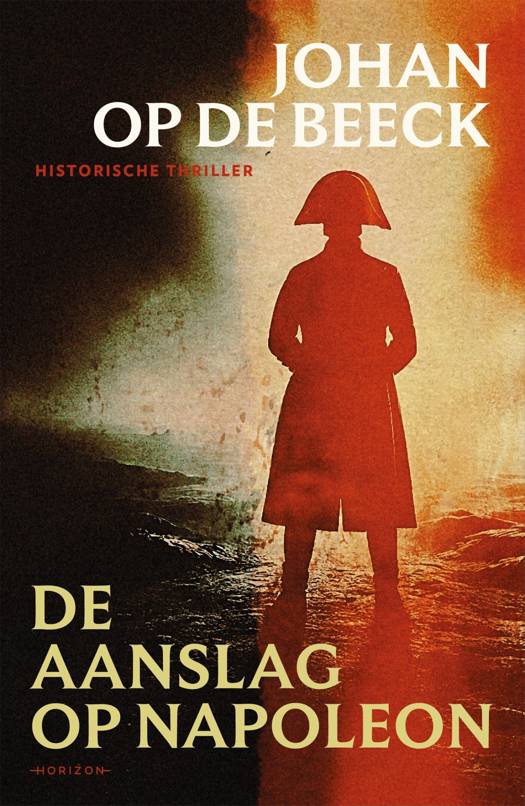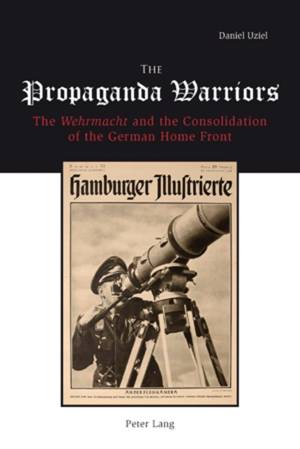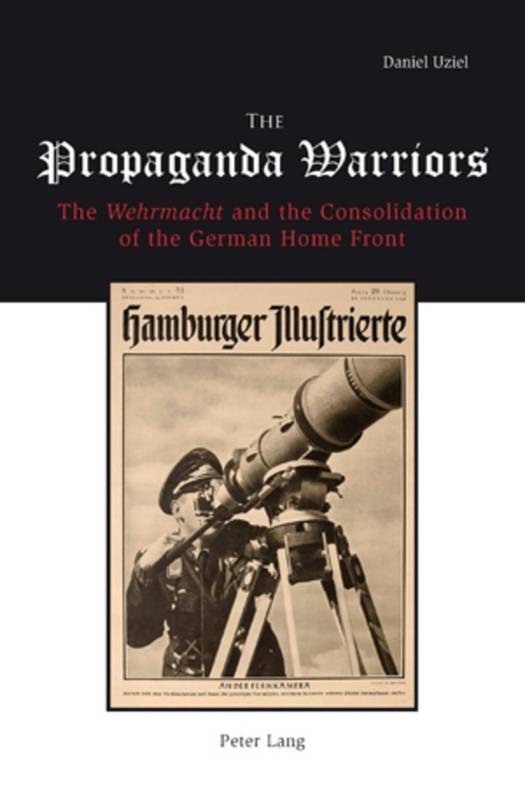
- Afhalen na 1 uur in een winkel met voorraad
- Gratis thuislevering in België vanaf € 30
- Ruim aanbod met 7 miljoen producten
- Afhalen na 1 uur in een winkel met voorraad
- Gratis thuislevering in België vanaf € 30
- Ruim aanbod met 7 miljoen producten
Zoeken
The Propaganda Warriors
The Wehrmacht and the Consolidation of the German Home Front
Daniel Uziel
Paperback | Engels
€ 109,95
+ 219 punten
Omschrijving
It has been generally assumed that the driving force behind German propaganda in World War Two was the Propaganda Ministry headed by Josef Goebbels, or the initiatives of various Nazi party organizations. There has been little research on the specific role of the Wehrmacht propaganda machine in this connection, even though it was the source for the bulk of German wartime propaganda material. This book deals with the history of the propaganda troops of the Wehrmacht, created shortly before WWII as a result of lessons learned concerning the importance of psychological warfare during WWI. This unique branch of service proved to be indispensable to the German propaganda effort during WWII. The products of its Propaganda Companies - better known as PK, a term that became synonymous with high-quality war reporting in Germany - formed a crucial and popular part of wartime propaganda. The military propaganda organization worked closely with Goebbels's Propaganda Ministry and their cooperation contributed to the success of this young service. The veterans of the propaganda troops and their wartime and postwar products continued to influence the image of the Wehrmacht and WWII long after the war.
Specificaties
Betrokkenen
- Auteur(s):
- Uitgeverij:
Inhoud
- Aantal bladzijden:
- 464
- Taal:
- Engels
Eigenschappen
- Productcode (EAN):
- 9783039115327
- Verschijningsdatum:
- 7/10/2008
- Uitvoering:
- Paperback
- Formaat:
- Trade paperback (VS)
- Afmetingen:
- 152 mm x 229 mm
- Gewicht:
- 616 g

Alleen bij Standaard Boekhandel
+ 219 punten op je klantenkaart van Standaard Boekhandel
Beoordelingen
We publiceren alleen reviews die voldoen aan de voorwaarden voor reviews. Bekijk onze voorwaarden voor reviews.











